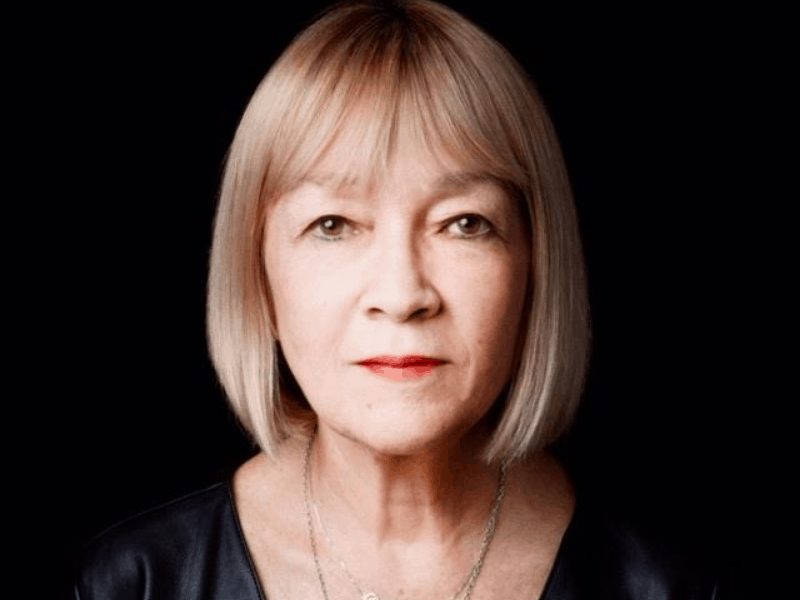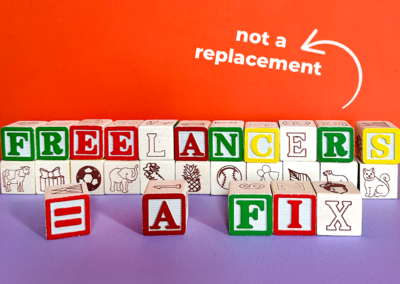Disruption is the name of the game for industry icon and MakeLoveNotPorn founder Cindy Gallop. An ad industry veteran and one of the most vocal firebrands on issues of injustice and equity on Madison Avenue, Gallop has also been an apt future-spotter, standing behind some of the most game-changing ideas in business, including the 3% Movement and We Are Rosie. Bennett D. Bennett, former The Drum writer and principal at creative consultancy Aerialist, sits down with the maven to discuss the best ways to disrupt aging, what she’d blow up next, and how anyone can see a future-molding idea.
Why has corporate America dropped the ball on ageism as an important part of the diversity, equity, and inclusion conversation?
Corporate America never picked up the ball in the first place. Ageism has long been the one ‘ism’ less focused on – and yet it’s the one ‘ism’ that applies to all of us, at every point along the age spectrum. Being deemed ‘too young’ in the workplace can be just as problematic as being deemed ‘too old’ – especially for women.
What Corporate America is missing out on, is that older people are the key to huge business success. Hiring and promoting older people – or, as I like to call us, ‘experts’ – is incredibly time- and cost-efficient for every business, because when we’ve been ‘round the block a million times, nothing fazes us, we know exactly what to do in any challenging business scenario, and we know how to do it quickly.
The future of the US economy would be dramatically favorably impacted if every business embraced, valued, and promoted older people.
You’ve been one of the most prominent faces in this discussion, even working with AARP and Refinery29 last year for their #DisruptAging campaign. How important was it for that conversation, for those two platforms to help make that stand?
When AARP hired me as a #DisruptAging influencer and ambassador, they kindly gave me the choice of where I wanted to focus our partnership, and I had no hesitation – I immediately identified challenging and changing ageism in the advertising industry as crucial, because our industry is such a key force in popular culture.
When we end ageism in the ad industry, we end ageism in advertising. And when we end ageism in advertising, we help end ageism in society as a whole. So it was great to have AARP and Refinery29 partner on that initiative, which resulted in identifying this action plan for the ad industry: and I very much hope that we can do more together going forwards.
Voices like yours, Derek Walker’s, and others have led the charge on Twitter. How has using this platform helped decentralize thought leadership, and what tips do you have for other older professionals who want to have a voice?
Twitter is my favorite social media channel for picking up on the news of the day, finding great analysis and observations, uncovering fascinating stories and information, connecting with others, and putting out there whatever you want to put out there. It’s also great for making things happen – you can get to anybody you want to get to on Twitter.
In my ‘How To Build Your Personal Brand’ presentation, I recommend to all professionals of any age, just be yourself on social media. That’s what I do.
Allyship is one of the bigger buzzwords lately, and for good reason. How can younger professionals, especially those who’ve elevated quickly in their careers, cause good trouble and be allies/accomplices to their older peers?
It’s very simple. Just do this.
You’re the Michael Bay of business. In an already incendiary 2020, what’s one thing that needs to get blown up before the year ends?
Racism. Definitively and forever. Ending racism in the corporate world is very simple: hire, welcome and promote Black talent. The solution is simple, but how you implement it is not.
To understand how you end racism effectively, watch my Zeitguide Culture Class interview with Brad Grossman.
And for companies and organizations who genuinely want to end racism and are willing to put their money where their mouth is, in a way that many companies are currently demonstrating they’re not, you can hire me as a consultant to help re-engineer your working processes to end racism, integrate diversity and inclusion, and drive far greater business success as a result. Email me here.
In the same vein, what’s the next blockbuster idea we’re not speaking enough about?
MakeLoveNotPorn, and our mission to end rape culture.
MLNP is a unique venture with a unique capability: the power to change people’s sexual attitudes and behavior for the better. Imagine if we were funded to be able to have this impact at scale globally, as the Facebook of social sex.
Between your work with Make Love Not Porn, annual 3% keynotes, and support of forward-leaning companies like We Are Rosie, you seem to have a grasp on where the future of work is. Not to reveal all your secrets, but how can anyone start future-spotting?
Again, it’s very simple. (I’m a big fan of radical simplicity.)
My favorite quote of all time is by Alan Kay, who said, ‘In order to predict the future, you have to invent it.’ Too many people think the future is something that happens without us and rolls us over in its wake. I’m all about, decide what you want the future to be, and make it happen. Especially now, when the pandemic and the Black Lives Matter protests are ensuring that the world will never be the same again.
That’s very good news—especially for those of us who were never the status quo to begin with. It’s only when things break down this utterly and completely that new models and new ways of doing things are enabled to emerge, that never would have otherwise.
There are two dynamics at play: the first is what the pandemic and the protests are making happen – the breakdown of the old world order. The second is, what each one of us seizes this opportunity to leverage, to create the future we want to live in.
So anybody can ‘future-spot’. You just decide what YOU want the future to be, and then make it happen.
Cindy’s Socials: LinkedIn, Twitter, Instagram
Bennett D. Bennett’s Socials: LinkedIn , Twitter



